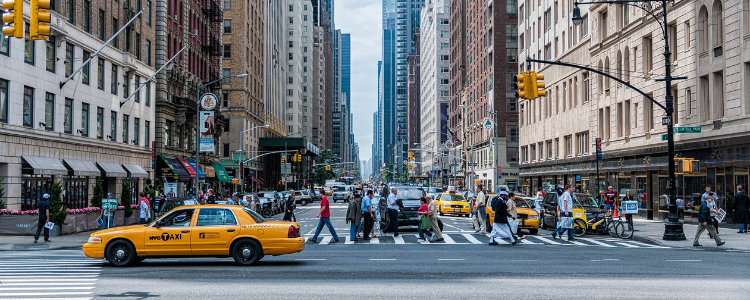New York City to require short-term rentals to register
- Mar 1, 2022 | Jennifer Sokolowsky

Short-term rental hosts in New York City will be required to register with the city and obtain a short-term rental registration number under a new law passed by the City Council in December. The ordinance, designed to cut down on illegal vacation rentals, became law in January and will go into effect in early 2022.
More than 37,000 New York City homes will need to be registered under the new regulations, according to City Council Member Ben Kallos, who introduced the bill.
Under the measure, hosts must pay a fee for registration, which could range from $20 to $100. Operators must include their registration number in any advertisements. The city will only issue registration numbers for hosts who permanently reside in their short-term rental properties and are owners or tenants who can prove they are allowed to rent the property. Rent-controlled or city-subsidized buildings and public housing are not eligible for short-term rental registration.
If short-term rentals are listed with a vacation-rental marketplace such as Airbnb or Vrbo, hosts must inform the city and identify the marketplace. Marketplaces are also required to register with the city, include registration numbers in listings, and verify registration numbers prior to processing transactions. Airbnb already shares data about listings and hosts with the city.
Operators who violate the new rules can face fines of up to $5,000, or three times the revenue generated by the short-term rental, for each violation.
The law does not apply to Class B multiple dwellings, which include accommodation providers such as hotels, lodging houses, rooming houses, boarding houses, club houses, and college and school dormitories.
According to the New York State multiple dwelling law, short-term rentals are only allowed in most apartment buildings if the permanent tenant lives in the apartment while guests are staying there.
Short-term rentals in New York City are subject to the city’s hotel room occupancy tax, which is collected by the city. Vacation rental operators must collect and pay the city occupancy tax unless the host rents a whole home to guests only up to 14 days in a year or only once or twice in a year.
Vacation rental hosts in New York City must also collect state-administered lodging taxes: State sales tax, New York City sales tax, and a Hotel Unit Fee of $1.50 per day.
Some short-term rental marketplaces have agreements with some individual counties in New York State to collect lodging taxes for their hosts. However, neither Airbnb nor Vrbo currently collect taxes on behalf of their hosts in New York City.
When hosts do not have lodging taxes collected on their behalf, they are responsible for tax compliance — including registration, collection, and filing — with the city and state.
MyLodgeTax can help New York vacation rental hosts automate and simplify lodging tax compliance. For more on short-term rental taxes in New York State, see our Vacation Rental Tax Guide. If you have tax questions related to vacation rental properties, drop us a line and we’ll get back to you with answers.
Cover photo by Canva



